Popular Articles
- Hair Loss Products for Men That Stop Balding
- Advecia Supplement Facts
- Medications That May Interact with Advecia
- Review of Rogaine for Women
- Vitamin Deficiency and Hair Loss - The Facts!
- Receding Hair & Beta Sitosterol
- Biotin for Hair Loss - Should You Try it?
- 6 Amino Acids for Hair Loss
- Sugar Linked to Increased Hair Loss Risk
- Hair Loss Vitamins for Women
- More Articles ...
 14 Vitamins That Help Hair LossIn This Article
Discover the 14 vitamins that help hair loss and prevent it from returning.
No one wants to have to deal with hair loss, but it is something that happens to millions of people around the world. Often, hair loss can be treated, and in many cases, just following a healthy diet that is loaded with certain vitamins (like biotin) for hair loss can help. It is important to be sure that we are eating all the right foods for our overall health, and the things we eat can play a huge role in the health of our hair. Both men and women need to have plenty of certain vitamins and nutrients in their diets to avoid hair loss, and these can be found in many foods and dietary supplements. Many people don’t know a whole lot about vitamins for hair loss and the role they play in our health. It is a good idea to familiarize yourself with the various vitamins that you need and then decide if you need more or less of a certain vitamin. Here is a rundown of 14 vitamins for hair loss:# 1 – Vitamin A for Hair Loss
Dry hair will eventually start to break, and when hair is broken and unhealthy, it can often lead to permanent hair loss. You can get plenty of vitamin A, which is also an anti-oxidant, from mangos, oranges, carrots, sweet potatoes, squash, and liver. The antioxidant properties of Vitamin A are especially useful for the protection of hair follicle cells. Circulating free radicals damage cells easily and accelerate the process of aging. Vitamin A can mop up these reactive radicals and prevent them from damaging the cells of the hair follicles. Similarly, Vitamin A supplementation prevents dryness of the scalp and wilting of the hair pores. This also contributes to the prevention of hair loss because a well-oiled skin signifies a well-nourished skin. In this way, hair shafts are healthier and the hair appears lush and full. Since Vitamin A supplementation requires a fine balance in order not to worsen hair loss, the recommended dosage of the vitamin in the treatment of alopecia is usually between 5,000 and 25,000 IU per day. Some Key Points to ConsiderBefore deciding on what hair loss vitamins, herbs, or other supplements you want to add to your daily regimen to try to prevent and reverse hair loss, you should know what exactly you are taking and what it can do.
The 3 Benefits of Vitamin A for HairMany who use Vitamin A for hair loss see results and there are other benefits like healthier skin, as well.
The Bottom LineAs you know Vitamin A, in addition to other vitamins such as Vitamin B, Vitamin C are beneficial to promoting overall better health which can help the body to work to prevent hair loss and encourage growth. Vitamin A, however, is a vitamin that focuses more closely on the condition of hair and nails. A body that is balanced has a steady supply of the vitamins and nutrients that help it function properly, including the scalp and hair follicles. Vitamin A is also crucial to the body as an anti-oxidant. The body needs anti-oxidants to have improved circulation function. Studies have shown healthy circulation is vital towards being able to prevent hair loss and eventually see hair regrowth. Circulation is what enables the scalp to be healthy. Not to mention this also aids in causing the hair follicles to be healthier which means less lost hair and improved hair growth. # 2 – Vitamin B for Hair LossVitamin B is necessary for healthy hemoglobin, which carries oxygen to the scalp through the red blood cells. A water-soluble compound, vitamin B consists of different variants that can be found in foods that are rich in proteins. Vitamin B can be found in foods such as soy nuts, carrots, eggs, and meat. Thus, most people can easily get vitamin B as it is found in foods in a regular diet. However, keep in mind, since the B vitamins are water-soluble, any excess of the vitamin is easily flushed out of the body. Eating food with vitamin B content will reduce hair loss and increase hair growth. There are various B vitamins, and the best for treating hair loss are vitamin B-6, para-aminobenzoic acid, biotin, and inositol. You can get vitamin B from fish and seafood, poultry, meat, beans, peas, bananas, oatmeal, eggs, potatoes, and low or non-fat milk. The B VitaminsVitamin B refers to a group of eight vitamins which, although related, are different. At one time the B vitamins were thought to be one. Such compounds include carnitine, once Vitamin B20; para-aminobenzoic acid (PABA), once Vitamin B10; adenine, once Vitamin B4. The eight members of the B complex are B1 or thiamine, B2 or riboflavin, B3 or niacin, B5 or pantothenic acid, B6 or pyridoxine, B7 or biotin, B9 or folic acid, and B12 or Cobalamin. These B vitamins are all water-soluble, therefore, they are extensively distributed in the body and easily eliminated in the urine. Because of the later reason, most of them are safe even in large doses. However, there are cases of toxicities for Vitamin B6 and B3. The B vitamins are essential to many biochemical processes in the body including regulation of hormones, minerals, and general metabolism. They are important to the nervous system and enhance the immune system; they help maintain healthy muscle tone, skin, nails, and hair; they are needed for cell division and are known to reduce the risk of developing certain cancers (for example, pancreatic cancer). The Basics of Vitamin B and Your HairThe fact of the matter is that a healthy diet leads to better overall health and the better their eyes, skin, nails, and hair will be. Some hair loss issues are the result of issues well beyond a healthy diet, but getting the vitamins and nutrients needed may still be able to help lessen the amount of hair loss and increase the overall appearance of the hair. Still, there are some things to keep in mind about vitamin B and hair loss.
Other Facts about B Vitamins for Hair LossVitamin B is an important factor when it comes to hair loss prevention and regrowth. This is apparent from the amount of online research which all points to the same conclusion and mentions Vitamin B as a vital part of working through hair loss prevention. There are a few other things to keep in mind:
# 3 -- Folic Acid Hair Loss
Folic acid occurs naturally in the body as folate, a water-soluble vitamin also called Vitamin B9 or folacin. In this form, it is inactive and only activated in the liver by conversion to dihydrofolic acid. Folic acid is essential to the synthesis, repair, and use of DNA. For this reason, it is crucial to rapid cell division which is an essential step in human growth. Without folic acid, the red blood cells lose their form and cannot carry their full capacity of oxygen. This quickly leads to anemia. The Skinny on Folic AcidFirst of all, let's review some things you may need to know about folic acid.
So What About Hair Loss and Regrowth?To determine if the concept of folic acid and hair loss treatments is fact or fiction, you have to understand what folic acid does for the body.
Supplementation and Vitamin B12To prevent hair loss, a daily dose of 400 to 800 micrograms is recommended. Since most folic acid supplement pills irritate the stomach lining, the advice is to take them with food. There is no risk of toxicity with folic acid since it is water-soluble and can be easily removed from the body. Still, an upper limit of 1 mg is specified. It is generally advised to take Vitamin B12 supplements alongside folic acid pills. This is because folic acid supplementation can mask megaloblastic anemia which is indicative of Vitamin B12 deficiency. Since folic acid does not also correct the neurological damage caused by this other deficiency, people taking folic acid supplements should regularly have their B12 levels checked or take small doses of B12 alongside. Things to Keep in MindHaving a folic acid deficiency can be one of the causes of hair loss. By keeping a healthy balance of folic acid in your body you can help prevent hair loss and eventually work towards hair regrowth. Folic acid is part of the B Vitamin group and is an essential part of helping with hair loss and hair regrowth. You can use folic acid supplements or make sure you get a healthy amount of it naturally through your diet. For most hair loss sufferers trying to use folic acid to improve their condition, a combination of both tends to work best. Taking supplements and eating foods that have folic acid can not only help to decrease the chance of hair loss and prevent hair from thinning in the future. This can be a great help to those who are genetically predisposed to baldness. Folic acid can be found in chickpeas, frozen peas, boiled asparagus, cooked lentils, medium papaya, and collard greens. # 4 – Vitamin C for Hair Loss
Losing hair does not have to be a permanent thing, and there are many natural treatments for premature balding, including using vitamin C. Healthy collagen development depends on vitamin C, and collagen is important if you want to have healthy hair. We also need to have vitamin C to avoid many health issues, and it can help keep us from catching colds and the flu. Facts about Vitamin CThere are many reasons why vitamin C is so good for us, and why it can be used to treat hair loss. For one thing, vitamin C is water-soluble, so the body does not store it and accumulate too much in your system. Here are some more interesting facts about this vitamin:
Not Enough Vitamin C?When you are not getting enough vitamin C, it can lead to dry or splitting hair, which in turn can lead to hair loss. At the very least, your hair is not going to be healthy-looking, and you may see many other problems. There are many delicious dietary sources of vitamin C. There are also several different types of dietary supplements to make sure that you are getting all that you need. You may want to choose a supplement that contains just vitamin C, or one that contains many of the vitamins and minerals that help to promote healthy hair. Some of the foods that you should have in your diet include:
According to the US Dietary Guidelines for Americans, the average adult should be eating five to nine servings of fruits and vegetables daily to ensure that they are getting enough vitamin C.
Adult men need about 90 mg daily, while women should have 75 mg daily. Smokers and women who are pregnant or breast-feeding need to up their intake by about 35 mg daily. Because ascorbic acid is a water-soluble vitamin, the chances of overdose are pretty low since it will simply be excreted in the urine instead of being absorbed. Still, it is important to not exceed stipulated doses especially in individuals known to suffer from iron overload disorder (Vitamin C improves iron absorption) or those with the genetic disorder in which the level of the enzyme G6PD is always low. If you are experiencing premature hair loss or thinning hair, and you want to find ways to treat it naturally, it may be that you need to have more vitamin C in your diet. Make sure that you are eating plenty of foods rich in this and other nutrients. Also, check with your physician to see if taking hair loss vitamins is right for you. He or she may have other suggestions as well to help you treat your hair loss. # 5 – Vitamin D for Hair LossHair loss and rickets are two health issues associated with a lack of vitamin D. It is involved in the health of hair follicles. Research done on mice showed that when certain genes were removed, the mice displayed vitamin D deficiency symptoms. These symptoms included rickets and hair loss. Fatty acids play a role in the body’s production of vitamin D. Without enough essential fatty acids, the body is not able to produce enough vitamin D, leading to a deficiency that can cause psoriasis and a flaky scalp. Vitamin D ExplainedVitamin D is sometimes called the “sunshine vitamin” because it is naturally produced in the body on exposure to sunlight. Vitamin D describes a group of related fat-soluble steroid-like compounds. There are five known members of this group and they are identified as Vitamin D1 through D5. However, the most important ones are Vitamin D2 and D3. Ultimately, Vitamin D is used in medical literature to refer to Vitamin D2 or D3 or both of them. These two forms of the vitamin are known as calciferol. Since Vitamin D2 or Ergocalciferol is synthesized from ergosterol, a compound not found in vertebrates, it is ingested rather than produced in humans. Vitamin D3, or Cholecalciferol, is synthesized in the skin from 7-dehydrocholesterol on ultraviolet irradiation. Once obtained, Vitamin D is transported in the human body to the liver where it is converted to calcidiol, a prohormone. Calcidiol is only converted to calcitriol, the active form of Vitamin D, in the kidney or by the cells of the immune system. From there, Vitamin D binds to a specific protein for onward transport to the various organs where it is needed. Vitamin D is known to be essential to cell division and differentiation. It also contributes to the immune system. However, the major role of Vitamin D is the regulation of calcium and phosphate levels in the body. Vitamin D maintains the calcium balance by encouraging its absorption in the intestines, promoting re-absorption of the mineral in the bones, and stimulating the parathyroid to regulate serum levels of calcium. How Vitamin D Works for Hair Loss Treatment
Studies have indicated for years now how Vitamin D plays a role in the condition of one's skin. Few people realize the connection between how having healthy skin on your scalp can help prevent hair loss and even stimulate regrowth. There are some other things you should know to better understand the vitamin D hair loss link:
Dietary Sources and Recommended Intake ValuesFood sources of Vitamin D include fatty fish such as catfish, sardines, eel, mackerel, salmon, and tuna. Vitamin D can also be found in appreciable amounts in fish oils, whole eggs, liver, fortified foods as well as yeast and mushrooms exposed to ultraviolet irradiation. Because of the risk of developing skin cancer, experts do not actively advocate exposure to sunlight to get the daily recommended intake of Vitamin D. Instead, foods rich in Vitamin D and supplements are recommended. Therefore, published values do not take into account the Vitamin D synthesized during sun exposure. 15 micrograms per day are the recommended Vitamin D intake for anyone below 70 years. Older people are advised to ingest 20 micrograms of the vitamin daily while 10 micrograms per day are the recommended value for babies 1 year and younger. However, the upper tolerable values for Vitamin D are 25 micrograms for babies, 75 micrograms for children below the age of 10, and 100 micrograms for anyone older.
# 6 -- Vitamin E for Hair Loss
Alpha-tocopherol is the most active form of Vitamin E and it is the second most common in the diet. The most common Vitamin E in the average diet is gamma-tocopherol. The primary function of Vitamin E is as an antioxidant. It chiefly mops up reactive oxygen radicals produced from fat oxidation. This antioxidant action makes Vitamin E essential for regenerative functions in the body where it protects tissues and organs such as the hair from damages. Apart from its antioxidant properties, Vitamin E also functions as an enzyme for certain biochemical reactions, promotes the integrity of gene expression, and serves an important role in cell signaling and neurological processes. Since Vitamin E is fat-soluble, it is taken up into cell membranes where it protects cells from damage from oxidative free radicals. Of the Vitamin E compounds, the tocopherols are the most studied, and of these, alpha-tocopherol is the one which has received the most attention. While the actions of these other Vitamin E forms are unknown, they are regarded to function similarly to alpha-tocopherol. Vitamin E deficiency often leads to muscle wasting, loss of coordination, nerve damage, anemia, retinopathy leading to blindness, weakened immunity, and loss of male fertility. Real Vitamin E deficiency is rare but is seen in people who are incapable of absorbing fat from their diets and those who cannot metabolize fat. Sources of Vitamin E
These are the most important sources of alpha-tocopherol, the most biologically active form of Vitamin E. Gamma- tocopherol whose activity is second to it is mostly found in margarine, soybean oil, and corn oil. The RDA recommended daily intake for dietary sources of Vitamin E increases steadily from 4 – 5 mg for infants to 15 mg for adolescents and adults.
Benefits of Vitamin EThere are many benefits to using vitamin E to treat hair loss. There are many benefits to having enough vitamin E in your diet, including improving circulation throughout the body and the head, helping the scalp to have the circulation it needs to keep hair follicles healthy, decreasing damage to the skin by the sun, and much more, promoting healthy hair growth. How Vitamin E Prevents Hair LossApart from the indirect effects such as its antioxidant and immune-boosting properties, Vitamin E has some direct actions of hair growth. For example, Vitamin E contributes to the integrity of the cell membranes of hair follicles. By doing this, it provides physical stability to hair follicles and reduces the rate at which hair strands fall off. Furthermore, Vitamin E increases capillary growth, therefore improving the oxygenation of the skin and the transport of needed nutrients to the cells of hair follicles. This increased microcirculation encourages rapid hair growth and the healing of damaged hair shafts. A good part of Vitamin E’s prevention and reversal of hair loss is due to its ability to protect the skin. This is the chief reason why it is used widely in hair products and other topical applications. By keeping the skin healthy and reversing damage due to the dehydrating and ultraviolet effects of sun exposure, Vitamin E promotes hair regrowth too. However, you need more than a topical application of Vitamin E to stop hair loss. Remember that hair growth starts from underneath the skin. Healthy hair follicles produce lasting strands that do not easily fall off. Using Vitamin E to Treat Hair LossThere are different ways that you can use vitamin E to treat hair loss. Many people use it topically, often as an ointment, but this is not always necessary, and not as effective as other types of treatments. This vitamin will work much better when it is digested, so it is best to get it from the foods you eat, or by taking supplements. Remember, it is possible to get too much Vitamin E in your diet, which can lead to increased oxygen in the body, which thins out the blood. While in some cases this may be helpful, helping to alleviate clotting issues, it can also have negative effects by causing blood not to clot quickly enough. If you are unsure about how much vitamin e you should be taking, you may want to speak with your physician to find out how much you need. Most likely, you will be advised to take the minimum daily amount required for an average diet. Vitamin E is available in supplement form, and it can be found in many healthy foods. Taking Supplements
Here are some things to remember about taking supplements:
If you are experiencing hair loss, you may not have to go to drastic measures to treat it. Often, just making some changes to your diet to make sure that you are getting the proper hair loss vitamins, nutrients, including vitamin E, is all you need to do to have healthy hair and prevent hair loss. Vitamin E supplementation is often combined with Selenium to treat hair loss. This is because they are both antioxidants and potentiates this property to preserve the integrity of cell membranes of the hair follicles. Since Vitamin E improves oxygenation of the blood and prevents the formation of blood clots, there is an increased risk of bleeding especially when the daily intake limits are exceeded. Therefore, those placed on blood thinners, aspirins and those susceptible to ulcers and hemorrhages should consult their physicians before commencing Vitamin E supplementation. Those who are diabetic or diagnosed with hyperthyroidism are not advised to take the vitamin too. Keep your Vitamin E supplements away from sunlight to prevent the breakdown of the active ingredients. # 7 – Omega 3 for Hair LossDid you know that Omega 3 can help treat hair loss? Poor nutrition and lack of hair loss vitamins can lead to many health problems, including baldness, and Omega 3, along with other important nutrients, can help prevent and treat hair loss. Omega 3 is an essential fatty acid, one of the fats that our bodies need to be healthy. It is also necessary for healthy hair, and without enough of the right nutrients in the diet, including Omega 3, unhealthy hair and hair loss can follow. What is Omega 3?
While ALA cannot be synthesized in the body, both DHA and EPA can be made from shorter-chain fatty acids although the conversion efficiency is rather low (5% in men; higher in women). Omega 3 fatty acids need to be ingested in humans either from dietary sources or supplements. They provide a wide range of health benefits including the treatment of cardiovascular disease, cancer therapy, improvement of neurological ailments, and anti-inflammatory agents. Other disease conditions treated with Omega 3 include asthma, ADHD, bipolar disorder, diabetes, depression, Alzheimer's disease, lupus, osteoporosis, osteoarthritis, obesity, migraine, multiple sclerosis, high blood pressure, psoriasis, and eczema. Dietary Sources of Omega 3
Coldwater oily fish are the most important sources of EPA and DHA Omega 3 fatty acids while seeds are rich in ALA. Fish oils are also a rich source of Omega 3. Other marine sources of these essential fatty acids include green-lipped mussels and krill. Of all seeds, flaxseed or linseed contains the highest percentage of ALA with but is low in EPA and DHA Omega 3 fatty acids. Vegetables do not contain appreciable amounts of Omega 3 except purslane. Eggs and meats are also good sources of Omega 3, especially if the animals producing them were fed on Omega 3-rich diets. It is important to know that prolonged exposure of Omega 3 fatty acids to heat, light, and oxygen can oxidize and denature them. Oils containing Omega 3 will turn rancid if so exposed. Therefore, dietary sources of Omega 3 should not be cooked for long, and frying removes some of the health benefits of these fatty acids.
How Does Omega 3 Prevent/Reverse Hair Loss?Omega 3 is only one of the essential nutrients needed by the body for normal functioning. While only a few clinical studies have examined the usefulness of Omega 3 in the treatment of hair loss, those few concluded that Omega 3 helps with the condition. By considering the total effect on Omega 3 on the body’s biochemistry including its beneficial actions on the integrity of cell membranes, nerve functioning, and its anti-inflammatory action, it is clear that Omega 3 can prevent and even reverse hair loss. One of the popular cosmetic benefits of Omega 3 is the promotion of skin health. A healthy, well-oiled scalp, for example, means that the hair follicles are getting the proper nutrition. Omega 3 is especially beneficial to those whose hair loss is due to factors other than genetic. Even then, those with a genetic predisposition to hair loss can slow down the progression of their Alopecia with Omega 3. Furthermore, Omega 3 promotes the production and action of hormones that affect the health, tone, sheen, and integrity of your skin and hair. It is also the source of the body’s natural lubricant for the scalp and big contributor to the sebaceous gland responsible for feeding hair follicles. Stress and aging are great inducers of hair loss, and Omega 3 reverses the signs and damage of these. By promoting general health, Omega 3 fatty acids stop the cascade of biochemical reactions leading to Alopecia. Supplementation and Recommended DosesEven though dietary sources of Omega 3 provide higher blood levels of the fatty acids than supplements, Omega 3 supplementation is recommended because most people never meet their daily requirement of Omega 3 from food sources.
Experts recommend 1 tablespoon of fish oil or 1 – 2 capsules of fish oil daily to prevent hair loss and promote hair regrowth. At these doses, Omega 3 encourages the anagen growth phase of hair follicles and reduces hair loss during the exogen phase. It also reduces skin inflammation and oils dry scalps. Since Vitamin E is a known fat-soluble antioxidant, consider adding it to your daily vitamin supplementation to help protect Omega 3 fatty acids from degradation through oxidation. Omega 3 doses exceeding 4000mg can increase the risk of bleeding. Therefore, those with a history of ulcers or other bleeding disorders, those on drugs such as blood thinners and aspirins, should consult their physicians before starting Omega 3 supplementation. Final NoteIt is important to note here that if you do have a lack of Omega 3 fatty acids and other nutrients, there are going to be much more than just hair loss problems to deal with. Hair loss or unhealthy hair can be a sign that there are other, more serious health problems going on, and you should consult a physician. If you are experiencing hair loss, it is important to see your physician right away. The sooner you discover the cause and start working on a treatment for hair loss, the better it is going to work. # 8 -- Zinc for Hair LossZinc helps to keep the scalp conditioned, preventing dandruff, and keeps the hair shaft healthy and strong. Not enough zinc in your diet can lead to premature greying or balding. The body does not naturally store zinc, so it is important to get it from healthy dietary sources, such as yeast, egg yolks, pumpkin seeds, and shrimp, or dietary supplements. It is important to remember to only take the recommended daily amount, unless otherwise directed by a physician, as too much or too little can lead to many problems, including hair loss.
You can find zinc in red meats, poultry, liver, wheat germ, shrimp, pumpkin seeds, soy products, egg yolks, and shrimp. Zinc is a trace element in the human body yet it is essential for a lot of biochemical processes. Some of the essential processes dependent on Zinc include cell reproduction, production and maintenance of hormone levels, protein synthesis, and absorption of vitamins and other minerals. When the body level of zinc is not enough to meet the body’s metabolic needs, a state of zinc deficiency is diagnosed. Zinc deficiency or hypozincemia is a nutrient deficiency precipitated by malnutrition or malabsorption of the element. It can also be caused by certain disease states such as renal disease, chronic liver disease, diarrhea, sickle cell anemia, diabetes, cancer, and even after having surgery to treat obesity.
One chief sign of zinc deficiency is hair loss. Other signs and symptoms include diarrhea, skin lesions, psoriasis, and muscle wasting. It is also implicated in the development of acne. If allowed to persist and without treatment, zinc deficiency could lead to anorexia and other appetite disorders, weight loss, baldness, impairment of motor skills and cognitive functions in children, pneumonia, dysmenorrhea, and distressed gestation in pregnant women. The group of people most prone to zinc deficiency includes the elderly, anorexics, alcoholics, those on restricted diets, and those with diseases such as Crohn’s and celiac which causes general malabsorption. There are many reasons why we need to zinc in our bodies. These reasons include:
Of course, too much of a good thing is not always good either, and this is true with zinc. It is a common fear that too much zinc in the body can raise levels of DHT. It may seem strange because even though DHT levels are raised, production is limited. Using zinc as a DHT blocker is not effective. Zinc helps to keep hormone levels regulated, which is one of the reasons why it is so effective in preventing and treating hair loss. # 9 -- Beta-Sitosterol for Hair LossThis is a natural plant extract that is loaded with nutrients necessary for healthy hair. Because it is all-natural, there are no side effects, and it can be taken in combination with your regular medications. Beta-sitosterol treats hair loss and promotes healthy new hair growth. There is no danger in taking beta-sitosterol, and it can be used by both men and women. It is often recommended for men who are experiencing hair loss, and regrowth of hair occurs in many cases. What is Beta Sitosterol?Beta-Sitosterol is a phytosterol or plant sterol that is similar to cholesterol in chemical structure. This similarity is the main reason Beta-Sitosterol is used clinically in lowering cholesterol since it competes with it in the intestine and reduces the overall absorption of cholesterol. Aside from its usefulness in reducing high cholesterol levels, Beta-Sitosterol is also used in the treatment of heart disease, BPH (benign prostate hyperplasia), and also for boosting the immune system. It has also been found useful in the management of colon cancer, cervical cancer, HIV/AIDS, tuberculosis, rheumatoid arthritis, common cold and catarrh, lupus, fibromyalgia, gallstones, asthma, bronchitis, migraine, allergies, psoriasis and hair loss. Sources of Beta-Sitosterol
Other plants from which Beta-Sitosterol can be derived include pumpkin seed, avocado, rice bran, cashew, wheat germ, soybeans, and corn oils. Other dietary sources of this plant sterol include food products like margarine.
Five Reasons You Should Try Beta-Sitosterol For Hair Loss# 1 -- Beta-Sitosterol is one of the least expensive ways you can treat hair loss, and it is all-natural with no negative side effects to be concerned about. Not only is Beta-Sitosterol an affordable treatment for hair loss, it has been shown to work in clinical studies and also provides other benefits such as boosting the immune system, lowering blood cholesterol levels, and relieving inflamed prostates. # 2 -- Some have even reported a faster onset of hair regrowth. Overall, user testimony has offered positive affirmation that Beta-Sitosterol works. People who take longer to see the first signs of hair growth are those who have been bald for years. Those whose hairs were just thinning saw the regrowth a few weeks after starting on Beta-Sitosterol. A study was done with two groups of men. One group took Beta-Sitosterol, while the other group took a placebo. The men who took the Beta-Sitosterol showed a 60% hair regrowth, proving that this is indeed an excellent way to treat hair that is thinning or unhealthy. # 3 -- Beta-Sitosterol is safe to use. Because it is natural, it is perfectly safe for men and women who are suffering from hair loss, and it can be used every day. The few side-effects of Beta-Sitosterol are mild and most of them resolve over time. One of the great things about Beta-Sitosterol is that it does not seem to react with other drugs, so it can be safely used in conjunction with other medications that you may be taking, and you won’t have to worry about any negative reactions. # 4 -- Many hair loss treatment products are not always safe for women to use. Women who have thinning hair often have very few options when it comes to treatments, but Beta-Sitosterol is safe for men and women and can be used by anyone who has problems with hair loss. # 5 -- Not only will it help to treat hair loss, but it will also help to ensure that new hair growth is healthy. This is going to do a lot to improve your appearance, and your self-confidence, which can be affected by hair loss. How Beta-Sitosterol Prevents Hair Loss
A randomized, placebo-controlled study found that Beta-Sitosterol and saw palmetto were successful for the treatment of Alopecia caused by elevated androgen levels in men. This double-blind study involved nineteen men in two groups. One group got soft gel placebos while the other got matching soft gels with 50 mg Beta-Sitosterol and 200 mg saw palmetto extract. One soft gel was taken twice daily and the study ran for four and a half months. A comparison of the men’s hair growth to the baseline showed that 60% of those receiving the plant extract and phytosterol showed improved hair growth while only 10% of the control showed similar improvements. This and other studies have established that not only does Beta-Sitosterol stop hair loss, it also promotes hair regrowth. Since Beta-Sitosterol is the active agent in saw palmetto, it is right to say it reverses hair loss. It is believed that this plant sterol inhibits the enzyme 5-alpha reductase. This is the enzyme responsible for the conversion of testosterone to DHT (dihydrotestosterone). DHT is a hormone long-established to be responsible for hereditary hair loss in men and women. Beta-Sitosterol and saw palmetto are two ingredients in our hair loss product Advecia. How To Take Beta-Sitosterol For Hair LossBeta-Sitosterol is available as a plant extract and constituent of some natural hair loss remedies.
While there is no standard dosage for Beta-Sitosterol supplementation, different experts have established positive results with daily doses between 60 mg and 350 mg. A daily maximum of 5000 mg is considered safe. Supplementation with Beta-Sitosterol can take as long as 12 months before positive outcomes of hair regrowth are seen. However, many users report oily, itchy scalp in the first couple of weeks which is a definitive sign of improved hair growth or the start of regrowth. Generally, the onset of hair regrowth is seen to be directly related to the stage of hair loss. Those who are just experiencing hair loss see improvements faster while those bald already need to stay on the supplement for longer to see the first signs of hair regrowth. Beta-Sitosterol is a safe supplement with few, mild side effects. Reported side effects include nausea, heartburn, indigestion, diarrhea, constipation, gas, and an increase or decrease in libido. Since there is not enough clinical data for use during pregnancy and breastfeeding, women should avoid Beta-Sitosterol as those stages. Beta-Sitosterol is contraindicated in people suffering from sitosterolemia. This is a rare, hereditary disorder in which fats are preferentially stored. Such people would only add to the fat store in their bodies, and then get all the more bloated. Also, excessive blood levels of Beta-Sitosterol increases the risk of cardiovascular events in men suffering from heart disease. Many other health issues can be helped by Beta-Sitosterol. This is a popular and effective treatment for those who are seeking natural ways to treat their hair loss. Beta-Sitosterol can benefit your overall health, and help you to have healthy hair. What more could you ask for? If you are starting to notice hair loss, it is important to start treatment as soon as possible. The sooner you begin treating the problem, the better the treatments are going to work. You may also want to check out online hair loss forums such as hair loss talk, hair loss help, and others to get as much information as you can. # 10 -- Iron for Hair Loss
There are three main reasons why women may have iron deficiencies: heavy periods with a lot of bleeding; ulcers and inflammations of the stomach that cause bleeding in the digestive tract, and blood loss after giving birth. Women generally have less iron because of blood loss from their menstrual cycles and increased demand due to pregnancy and breastfeeding. Therefore, they have less iron stored up and so can easily become anemic. The body tries to conserve its iron levels by reclaiming iron for aged red blood cells. Still, about 1 mg and 2 mg is daily lost in men and women respectively. The major site of this loss is the skin (through sweating and shedding of the cells) and the lining of the gastrointestinal tract. Because of this steady loss, iron must be taken into the body either with food or through supplements. Dietary sources of iron include lean red meat, dried fruit, tofu, and broccoli.
# 11 -- Grape Seed for Hair LossThis is one of the safest things that can be used to treat hair loss. It is available in liquid and capsule form, and it inhibits hair loss while promoting healthy hair growth. Those who have certain genetic diseases or suffer from poor nutrition and are experiencing hair loss can benefit from using grape seed extract, which can be found at most health food stores or any store that has a vitamin section. It stimulates the hair follicles, and hair loss can be reversed by using grape seed extract. It is also great for cleansing the body due to its many detoxifying agents. Here are seven reasons why you should try using grape seed extract for hair loss:# 1 – The OPC’s (oligomeric proanthocyanidins) that are in grape seeds inhibit the production of DHT, one of the main factors in hair loss. The OPC’s also stimulate hair follicles, promoting healthy hair growth. # 2 -- When you use grape seed extract, not only is it excellent to treat hair loss, it can also help to “reverse” the effects of aging because of its detoxifying agents. You will notice that your skin looks healthier, which as we all know is going to make you look younger. You will also have healthier looking hair, something else that helps to keep you looking young. # 3 -- Grape seed extract lowers the amount of DHT in the hair follicles. This means that it will stimulate the follicles so they are healthy, allowing new, healthy hair to grow quickly. # 4 -- When you take grape seed extract, it can do a lot to help improve your cardiovascular system. It will increase blood circulation, so your body has plenty of oxygen and nutrition, which of course is going to help to promote healthy hair growth. # 5 – Grapeseed oil contains high levels of vitamin E and essential fatty acids that are important for healthy hair. These nutrients are rich in antioxidants and have anti-inflammatory properties that not only promote healthy hair growth but also are good for our overall health.
# 7 -- Grapeseed oil can help to slow down the aging process, so when you use it, you will find that you look younger and healthier. It will help to keep your hair healthy and shiny and your skin glowing, which in turn is going to do wonders for your self-confidence. In addition to the many products containing this nutrient, grape seed extract is available in both liquid and capsule form and can be found in most health food stores, pharmacies, specialty food stores, and online stores. If you decide to use it in the liquid form, you only need to use a small amount at a time to encourage healthy hair growth. How Grape Seed Extract Promotes Hair RegrowthThere are multiple possible pathways by which grape seed extract promotes hair regrowth and reverses hair loss. The most important of these is the action of proanthocyanidins found in the grape seed extract. It inhibits the conversion of testosterone to dihydrotestosterone (DHT). Since high levels of DHT is a known cause of androgenic alopecia, grape seed extract can be used to reduce the rate of hair loss. Furthermore, proanthocyanidins act as growth stimulants for hair follicles. A recent study by Japanese researchers screened hundreds of plant extracts for their ability to reverse hair loss showed overwhelming proof of this hair follicle stimulating property. Proanthocyanidins extracted from grape seeds not only stop hair loss but increased the growth of hair cells by over 200%. To achieve this feat, proanthocyanidins generated two anagen, or hair growth phases. Instead of the telogen phase during which the hair growth cycle shows no activity, proanthocyanidins produced another anagen phase, a twin-peak that led to rapid hair regrowth. The effectiveness of proanthocyanidins in hair regrowth is said to be similar to the drug, minoxidil. Other follow-up studies have confirmed this doubling of the anagen phase and rapid hair growth caused by proanthocyanidins. Grape seed extract also contributes to hair regrowth by promoting skin health. For example, the improved microcirculation in the capillaries close to the skin means that the cells of hair follicles are adequately perfused with nourishment and oxygen. This effect is further reinforced by the increased production of nitric oxide at these sites. Nitric oxide is a known vaso-relaxant that dilates the blood vessels improving blood circulation to the capillaries feeding skin cells and hair follicles. Lastly, there is the antioxidant property of grape seed extract which is rated to surpass those of Vitamin C and E. By mopping up free radicals, grape seed extract provides anti-aging benefits and protects the integrity of hair follicle cells from oxidative damage allowing hair strands to last longer before falling off. Dosage and PresentationGrape seed extract is supplied both as capsules and tablets of 50 mg and 100 mg strengths. Most people prefer the capsule form because the extract is bitter to taste. It is important to take a formulation of the extract that is labeled to contain greater than 90% OPC's and at least 40% proanthocyanidins. Preparations of grape seed extract usually include other compounds known to improve hair regrowth. Therefore, grape seed extracts are often formulated with other hair loss remedies such as extracts of saw palmetto, green tea, and zinc. Recommended daily intake of grape seed extract for hair loss and thinning is 200 mg taken in two divided doses. However, an upper limit of 450 mg per day is specified. Studies have shown that the extract is safe as long as recommended doses are followed. Still, a few side-effects have been reported. These include nausea, headache, dizziness, and dry, itchy scalp. Also, those on blood thinners should avoid grape seed extracts because the proanthocyanidin content inhibits platelet adhesion causing blood-thinning and longer clotting time.
# 12 -- Amino Acids for Hair LossHair loss can be treated with amino acids, which will work even better when combined with other vitamins and nutrients. The amino acids that are best for treating thinning hair are:
# 13 -- Inositol for Hair LossWhat is Inositol?
It is synthesized in the body from glucose and sometimes considered part of the compounds making up Vitamin B complex. Most of the production of inositol in the body occurs in the kidney where a few grams are synthesized every day. While inositol can be found in various plants, it is mostly in the form of a salt, phytate. Brans, beans, and seeds are known to contain inositol solely as phytate. However, humans cannot break down this compound and so brans, beans, and seeds cannot be depended on as a dietary source of inositol. Phytate chelates some essential minerals such as zinc, iron, calcium, and magnesium. Some of these minerals are essential to hair growth and are used in treating hair loss. Therefore, the plant source of inositol should not be depended on for hair loss therapies. Some other plant sources of inositol are found in the form of lecithins. Lecithins are digestible in humans; they are easily absorbed and provide appreciable amounts of the carbohydrate. Inositol is known to be important to cell communication. It specifically contributes to signal transduction through hormones such as insulin, overseeing membrane electric potential gates in cells, and modulating the activity of nerves and certain neurotransmitters. Other biochemical functions of inositol include its ability to break down fat leading to lowering of cholesterol levels, mediation of gene expression, and contribution to cell structure, cell shape, and integrity. As a result of the inositol’s action on the nervous system particularly its ability to control the activity of serotonin, it is being studied for the treatment of several psychiatric conditions including panic disorder, unipolar and bipolar depression, agoraphobia and obsessive-compulsive disorder. Several studies have also found inositol to provide effective treatment for polycystic ovarian syndrome, amenorrhea, insulin resistance, and hyperandrogenism. Possible Mechanisms of Inositol’s Effectiveness in Hair Loss TreatmentIt can be argued that inositol’s success in addressing hyperandrogenism is an indication of its usefulness in treating hair loss, and evidence to corroborate the positive reports of people who have used it in this way. Hair loss is known to be especially encouraged by high levels of circulating androgens. Dihydrotestosterone (DHT) synthesized from testosterone is one of the androgens known to trigger the dickkopf-1 gene to produce the protein DKK-1 which is known to cause papilla cell death. Papilla cells are the cells responsible for the nourishment of hair follicles. With increased DKK-1 concentration, hair growth slows down and hair loss accelerates. Therefore, since the inositol addresses hyperandrogenism, it follows that it will reduce the body level of androgens, reduce the expression of dickkopf-1 gene and lower the activity of the DKK-1 protein. This chain of events will provide a positive outcome of increased hair growth. Still another possible way inositol reverses hair loss is through its combination with choline. Inositol is often combined with choline bitartrate in hair loss remedies. When both compounds are combined, they form phospholipids. Phospholipids are known to be crucial to the development of healthy hair follicles. Inositol’s prospects as an effective hair loss treatment are especially good when you consider that these two pathways demonstrate that it can treat hair loss from the two crucial points: the increased growth rate of new hair and the strengthening of hair strands as they grow. The Physical Benefits of InositolThere are many things that inositol can do for our bodies, including promoting healthy hair growth. It keeps estrogen levels properly balanced, and it can help in the prevention of breast cancer by preventing breast lumps from forming. A combination of inositol and choline produces lecithin, which is necessary for the prevention of high cholesterol. Inositol has been proven effective when given to premature babies and has been shown to reduce death and disability in premature infants. There are compounds in inositol that have qualities that are necessary for the prevention and treatment of certain cancers. Inositol can even be used to treat constipation. It has a stimulating effect, which allows for ease of bowel movements. Inositol is good for the nervous system and is being studied for treating depression, panic attacks, Alzheimer’s disease, and other nervous conditions. There are many delicious ways you can get plenty of inositol in your diet, including unrefined molasses, raisins, Brewer’s yeast, oat flakes, nuts, wheat germ, bananas, beef and pork brain, liver, hearts, brown rice and a variety of vegetables. # 14 – Biotin for Hair Loss
It is one of the most important vitamins you can have in your diet for healthy hair growth, and it may be that you will need supplements to get as much as you need. Two foods that are excellent sources of biotin are liver and egg yolks, but you need to eat so much of these that it is much better to take supplements, or you would be doing nothing but eating liver and eggs all day long. If you are eating a healthy diet, but find that you are still not getting all of the vitamins you need for optimal health and to avoid or treat hair loss, you may want to consider taking vitamin supplements.
Supplements Can Improve Hair HealthYou may not realize it, but a lot of the nutrients you eat everyday boost (or suppress) the health of your hair. If you eat the right balance of nutrients, including a lot of nutrients like biotin for hair loss, zinc for hair loss, and vitamin C for hair loss, then the overall health of your hair will improve. Your hair will become fuller because the hair will be in the growth cycle longer than the rest phase, which will help your hair stay stronger, healthier, and look better. |
||||||||||||||||||||||||||||||||||||||||||||||||||||||||||||||
| Next Article: 5 Hair Loss Forums & Websites |





 We need vitamin A for the production of scalp oil, also known as sebum. Without sebum, our hair gets dry and brittle, and dandruff and a thick scalp will develop, both of which can be annoying to treat.
We need vitamin A for the production of scalp oil, also known as sebum. Without sebum, our hair gets dry and brittle, and dandruff and a thick scalp will develop, both of which can be annoying to treat. This vitamin can play a huge role in treating and
This vitamin can play a huge role in treating and 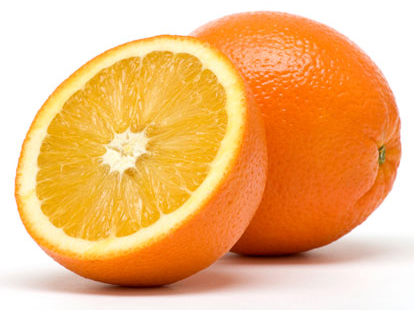
 Vitamin C is loaded with anti-oxidant properties, just like vitamin E and zinc. These anti-oxidants reduce the damage that is caused by free radicals that are formed when food is converted into energy by the body. These free radicals can do a lot of damage to your hair, which is one reason why we need to make sure that we have enough of this vitamin in our diets.
Vitamin C is loaded with anti-oxidant properties, just like vitamin E and zinc. These anti-oxidants reduce the damage that is caused by free radicals that are formed when food is converted into energy by the body. These free radicals can do a lot of damage to your hair, which is one reason why we need to make sure that we have enough of this vitamin in our diets.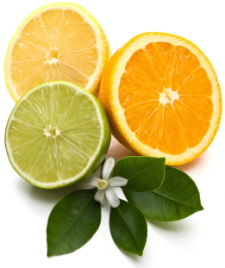 Spinach
Spinach
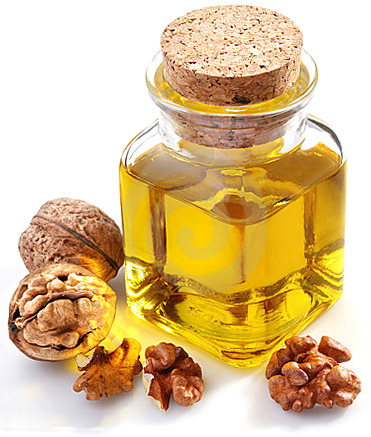 Dietary sources of Vitamin E include the following in descending order of the content of the vitamin:
Dietary sources of Vitamin E include the following in descending order of the content of the vitamin: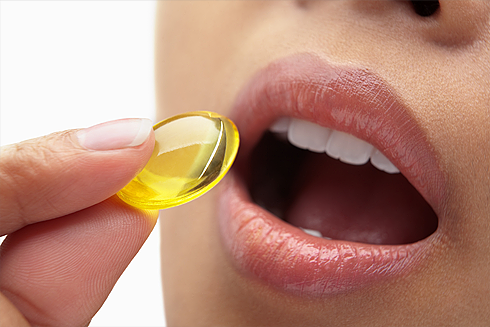 Although it is usually best to get the vitamins and other nutrients you need from the foods you eat, there may be times when you need to have a little extra, and you may need to start taking supplements. Hair loss herbs can help as well.
Although it is usually best to get the vitamins and other nutrients you need from the foods you eat, there may be times when you need to have a little extra, and you may need to start taking supplements. Hair loss herbs can help as well. 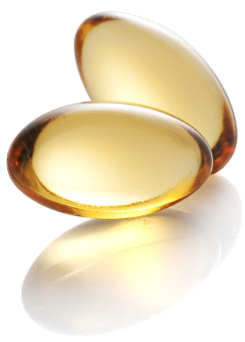 Omega 3 is the name given to a group of related fatty acids found in oils of plants and marine life. These are essential fatty acids that are important to metabolism but cannot be synthesized in humans. The 3 most important of these Omega 3 fatty acids are:
Omega 3 is the name given to a group of related fatty acids found in oils of plants and marine life. These are essential fatty acids that are important to metabolism but cannot be synthesized in humans. The 3 most important of these Omega 3 fatty acids are: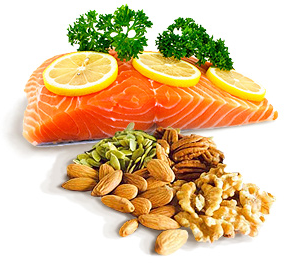 Fish – Salmon, halibut, sardines, albacore, trout, catfish, cod, tuna and herring
Fish – Salmon, halibut, sardines, albacore, trout, catfish, cod, tuna and herring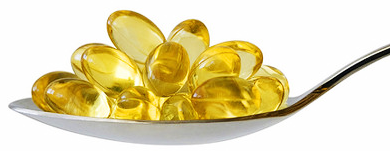 The most common Omega 3 supplements are fish oil in liquid and capsule dosage forms.
The most common Omega 3 supplements are fish oil in liquid and capsule dosage forms.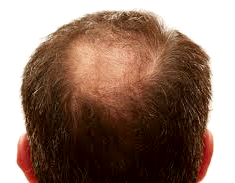 It is important to note that deficiencies of Vitamin A and D are prominent causes of zinc deficiency.
It is important to note that deficiencies of Vitamin A and D are prominent causes of zinc deficiency.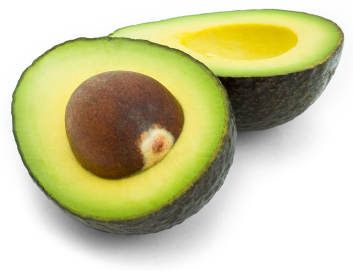 Although Beta-Sitosterol is found all over the plant kingdom, it is most recognized as the active ingredient in saw palmetto.
Although Beta-Sitosterol is found all over the plant kingdom, it is most recognized as the active ingredient in saw palmetto.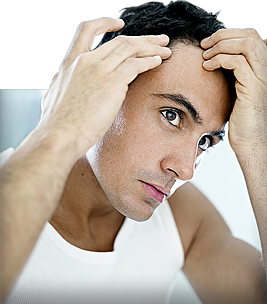 Beta-Sitosterol can help many men see hair regrowth within five months.
Beta-Sitosterol can help many men see hair regrowth within five months. Even though there are few clinical studies about Beta-Sitosterol and its effect on hair loss, the supporting evidence for its use in the treatment hair loss derives from studies done on saw palmetto.
Even though there are few clinical studies about Beta-Sitosterol and its effect on hair loss, the supporting evidence for its use in the treatment hair loss derives from studies done on saw palmetto.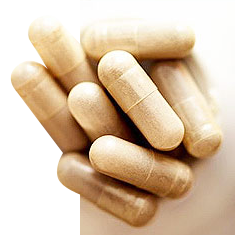 It is also available in oral forms, mostly as capsules, and other configurations. Some formulations contain only Beta-Sitosterol, some combine it with saw palmetto extracts, and others use it in a phytosterol complex usually with campesterol and stigmasterol.
It is also available in oral forms, mostly as capsules, and other configurations. Some formulations contain only Beta-Sitosterol, some combine it with saw palmetto extracts, and others use it in a phytosterol complex usually with campesterol and stigmasterol.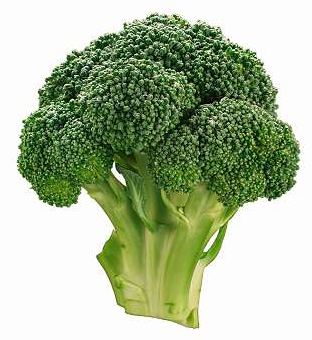 A lack of iron can cause hair loss in women, so it is important to make sure that women are getting enough of this nutrient in their diets.
A lack of iron can cause hair loss in women, so it is important to make sure that women are getting enough of this nutrient in their diets.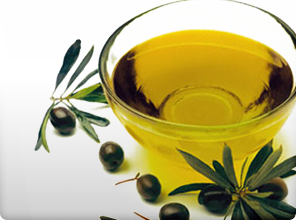 # 6 – Grapeseed oil is easy to use, and can be taken orally or used as a topical solution. You will find a large variety of lotions and creams, and even some shampoos that contain grape seed oil available on the market today.
# 6 – Grapeseed oil is easy to use, and can be taken orally or used as a topical solution. You will find a large variety of lotions and creams, and even some shampoos that contain grape seed oil available on the market today.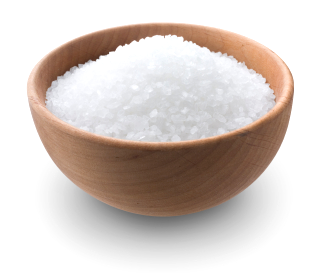 Inositol is a water-soluble sugar-like carbohydrate. It exists in nine forms but the form, Myo-inositol, is the most naturally occurring. Inositol is considered half as sweet as sucrose.
Inositol is a water-soluble sugar-like carbohydrate. It exists in nine forms but the form, Myo-inositol, is the most naturally occurring. Inositol is considered half as sweet as sucrose.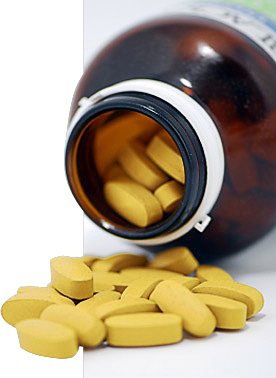 Biotin is considered to be “food for your hair”, and it plays a huge role in hair loss.
Biotin is considered to be “food for your hair”, and it plays a huge role in hair loss.